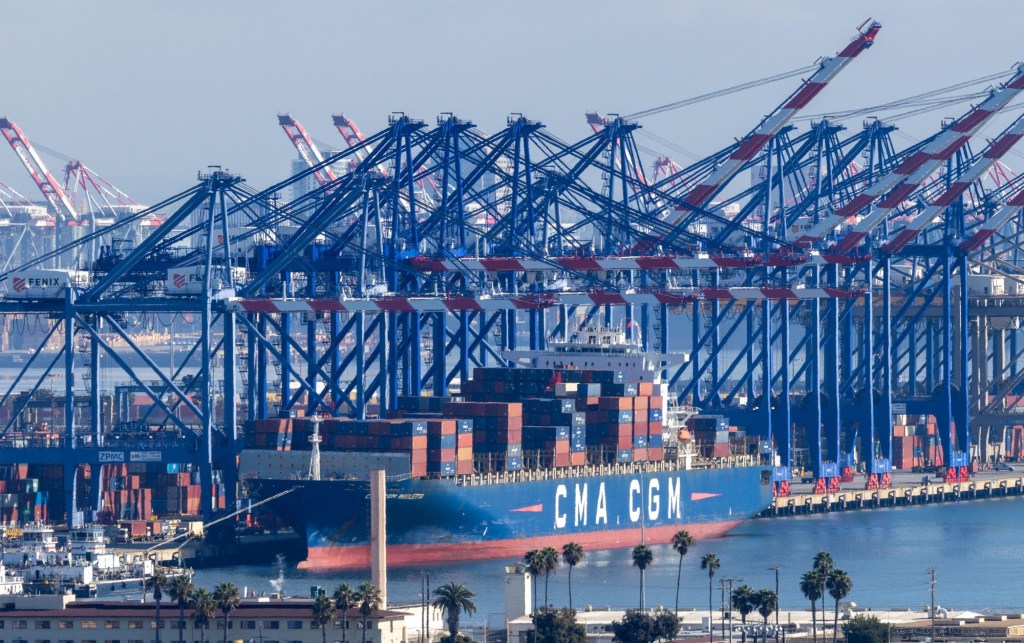
President Trump has now touted a new trade deal with China in an effort to calm markets and return business to normal. But tariffs on China remain at a historic high of 30% and the alleged threats to American national security that originally rationalized tariffs have not changed.
Recent lawsuits challenging the tariffs have reasonably objected that trade deficits and fentanyl don’t count as real national security emergencies. But the United States does face significant national security challenges (if not via deficits and drugs) from China and other foreign powers. So critics of the new tariffs need clarity about the proper role of trade policy in protecting national security.
They can find it in the ideas of a thinker who understood the harmony between free trade and a strong national defense: Ayn Rand.
“The essence of capitalism’s foreign policy,” wrote Rand in 1964, “is free trade — i.e., the abolition of trade barriers, of protective tariffs, of special privileges — the opening of the world’s trade routes to free international exchange and competition among the private’ citizens of all countries dealing directly with one another.”
Famously a champion of capitalism, Rand saw free trade as the mechanism by which capitalism ensured international peace. Individuals free to produce and trade have no interest in war with their trading partners, and the spread of that freedom increases their security. Here Rand cited the relative absence of global war in the 19th century.
With her eyes on history, Rand confidently skewered the enemies of free trade in her day and praised its expansion. In a 1962 LA Times column she condemned a tariff bill proposed by President Kennedy that would give him “discretionary power to raise or lower tariffs, thus leaving the fate of countless industries at the mercy of his unpredictable favor.” (Her warning here sounds prophetic amid Trump’s tariffs.) In another column that year she praised the European Common Market for lifting their economies from wartime ruin by expanding free trade across their borders.
And yet even as an ardent anti-communist, Rand saw free trade as an antidote to the threat of Communist China. In a 1967 TV interview with Johnny Carson, who asked her about China, she remarked that “a free country can coexist with anyone, and incidentally free the rest of the world by example, if it frees itself and if it has a firm domestic and foreign policy. Remember that the United States destroyed tyranny, serfdom and slavery all over the world, not by fighting wars – by example, by free trade.”
Rand was unrivaled in her commitment to a firm foreign policy committed to defending the individual rights of Americans. Even as a fierce critic of Kennedy, she praised his blockade of Cuba during the 1962 missile crisis on the grounds that any step needed to eliminate “an intolerable threat to our national security” was justifiable.
But tariffs are notably different from blockades and embargoes used to oppose military threats. If one is truly committed to protecting Americans’ lives, property and freedom, one does not slap a tax on trade with an enemy regime, one outlaws it. To the extent that China poses a threat, we should ban exports there of militarily sensitive technology, and imports of its products that violate American intellectual property rights.
Full embargoes, of course, are tactics during imminent military conflict. In a 1964 interview with Playboy, Rand said that only an economic boycott of Soviet Russia was necessary to oppose its threat. She thought businessmen who wanted to trade with dictatorships should be free to do so, but at their own peril. (In a 1970 lecture, she quipped that the dictatorships always “took care of the peril.”)
Importantly, the use of military blockades or embargoes is not merely a pragmatic exception to a general policy of free trade. For Rand, there was a difference in principle, deriving from the basic principle of proper government: government is properly limited to the function of protecting individual rights. In peacetime, government protects property rights by protecting free trade. But in times of war or imminent military threat, government protects the rights of peaceful people by outlawing trade that aids and abets the threat of an aggressive foreign government.
Rand’s case for free trade itself was not essentially economic but based on moral principle. Capitalism, she argued, is the system that protects by right the morally admirable activities of trade and production. Individual rights shield us from the initiation of physical force – whether by tax collectors, or dictators threatening us with missiles.
Today’s tariff frenzy is not really motivated by a concern for military threats, anyway. In her most important theoretical statement of the importance of individual rights, her 1963 essay “Man’s Rights,” Rand lampooned the actual motivation, stated then in the 1960 Democratic Party Platform’s claim that every businessman had a right to be free “from unfair competition.” She answered: “Property rights and the right of free trade are man’s only ‘economic rights’.”
The failed ideas of the Kennedy administration have now been scavenged from the scrap heap of history by Trump. Learning from Rand, we should oppose on principle any foolish attempt to purchase security at the expense of restricting free trade, no matter the fool’s party.
Ben Bayer, Ph.D. in philosophy, is a fellow and director of content at the Ayn Rand Institute. He writes and edits for ARI’s online publication, New Ideal. Twitter: @BenBayer.
Originally Published:



